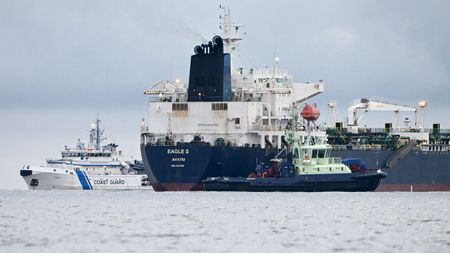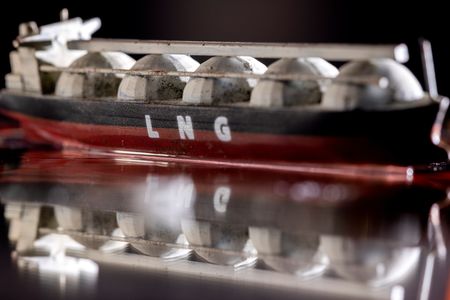By Anne Kauranen
HELSINKI (Reuters) – Russia’s oil shipments via the Baltic Sea fell by roughly 10% in the last four months of 2024, the Finnish Border Guard said, as the impact of EU sanctions against Russian oil and gas exports adopted in June took effect.
Baltic Sea nations are on alert after disruption of power cable, telecom link and gas pipelines since Russia’s full-scale invasion of Ukraine in 2022, some of which has been linked to tanker activity.
At the same time, Finland’s Coast Guard monitors the shadow fleet that Russia uses to export oil via the Gulf of Finland.
It comprises tankers that are old and in poor condition, meaning there is a risk they could spill oil and cause environmental damage in the shallow and fragile Baltic Sea, the Finnish Border Guard’s Head of Maritime Safety Mikko Hirvi told Reuters late last week.
“In the last four or five months of last year, we saw a roughly 10% decline in the amount of oil leaving from Russia,” he said, drawing a comparison with the previous two-year average when 70 to 80 tankers a week exported oil from Russian ports via the Baltic Sea.
Hirvi said the decline began after the EU in June increased the number of shadow fleet tankers under sanctions. The U.S. has also this month toughened its measures.
The sanctions can mean the shadow fleet tankers are being removed from service.
“That is of course very good, but on the other hand, older vessels have been added to the traffic on the Baltic Sea at the same time. The vessels in operation are in worse condition than before,” he said, adding it was too early to tell if the decline in their number would only be temporary.
In October, Finland’s Coast Guard said it had detected disturbances to satellite navigation signals in the Baltic Sea and some tankers had altered their location data to cover up their visits.
The lack of navigation signals has led to situations in which vessels have become lost and drifted dangerously close to islands or shallow waters, it said.
On Dec. 30, the Coast Guard had to secure an oil tanker that was en route to the Russian port of Primorsk due to engine failure, while Germany secured another tanker adrift off its Baltic coast on Jan 10.
(Reporting by Anne Kauranen in Helsinki; editing by Barbara Lewis)










